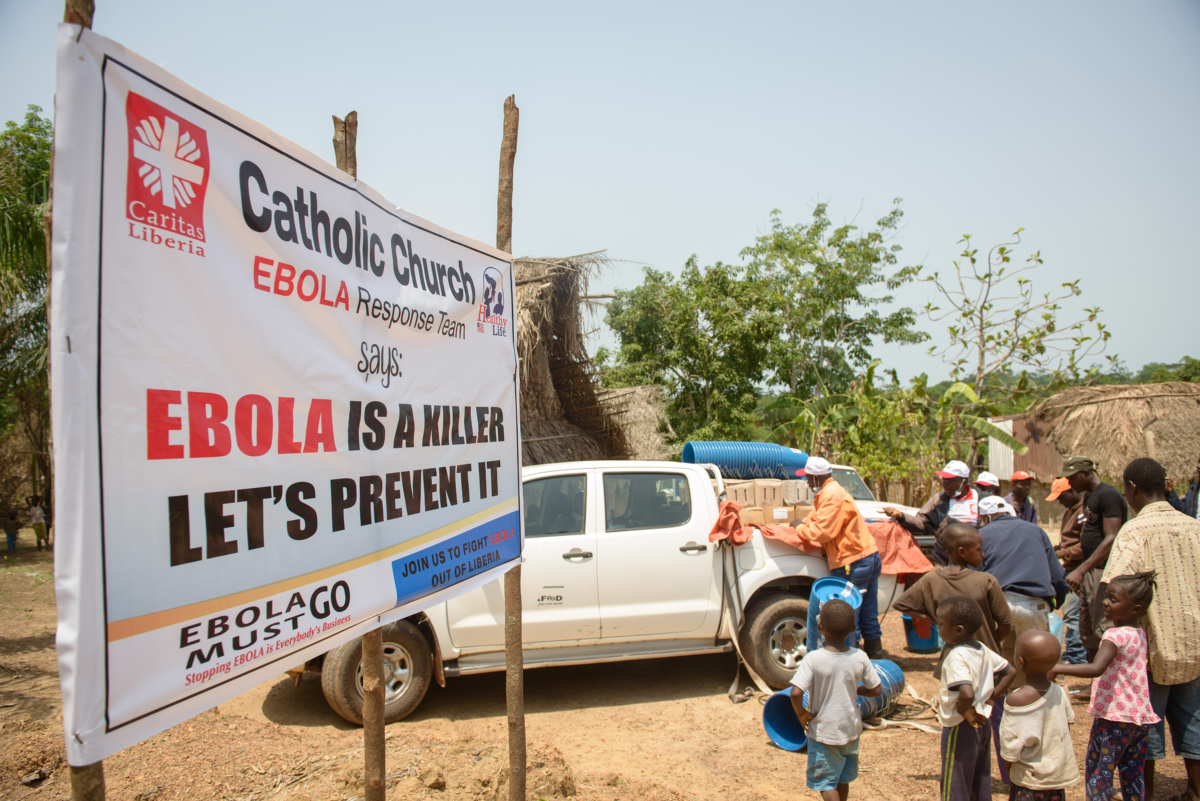On 22 May, on the occasion of the official event Taking Civil Society Engagement to New Heights to Advance WHO’s 13th General Program of Work and Achieve the “Triple Billion” Targets organised at the margin of the 71st World Health Assembly, civil society representatives, the UN Foundation, health experts and even persons suffering of Non-Communicable Diseases came together to share their experiences in order to understand and improve the collaboration between WHO and Civil Society Organizations (CSOs) under the new WHO Global Program of Work.

Caritas presented successful good practices from the Latin American and African regions, such as the collaboration with WHO and other experts to respond to the 2014 Ebola outbreak in Sierra Leone, Guinea and Liberia. Credit: Miguel Samper/Caritas
The preliminary findings of the mandate of the Task Team were shared, along with recommendations to accelerate achievements by leveraging on both WHO and CSOs’ strengths, to have a more united rights-based and multi-sectorial approach. In his keynote speech, the Director General of WHO, Dr. Tedros, highlighted the importance of CSOs engagement in achieving the new Global Program of Work: “WHO has a broad mandate but it cannot cover everything by itself. We must believe in the power of partnerships”.
Caritas Internationalis, as sole Faith-Based Organisation (FBO) member of the Task Team, gave input to the panel by emphasizing the unique role of FBOs in health programming. In fact, given their comprehensive nature as well as their inclusiveness and compassion, FBOs are seen by communities and people in need as “havens of refuge”, particularly in resource-limited settings.
Caritas presented successful good practices from the Latin American and African regions, namely the success stories of joint efforts in tackling the 1991 cholera emergency in Peru or the collaboration with WHO and other experts to respond to the 2014 Ebola outbreak in Sierra Leone, Guinea and Liberia.
The turnout at the event was remarkable, the discussion fruitful and engaging, and the overall atmosphere was of optimism, in a spirit of collaboration towards the achievement of universal health coverage for all.
